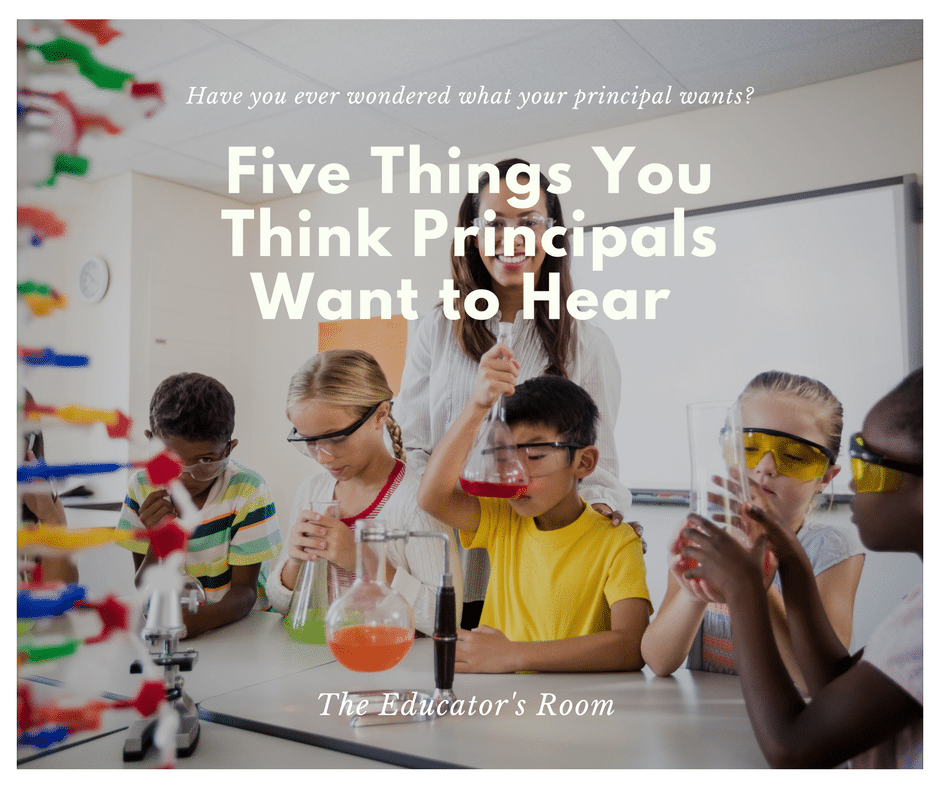By Jessica Bohn
Having conducted many teacher interviews, I sometimes see a pattern emerge from candidates’ answers during job interviews. Sometimes it is thought that if teacher candidates use the current buzzwords, they are sure to make a good impression. However, the reality is that most principals have conducted countless interviews and can see through the collage of buzzwords.
The way to truly impress a hiring principal is to provide specific examples that demonstrate your competence and your enthusiasm regarding various components of teaching and learning.
Following are five examples of things you might think hiring principals want to hear, and what they are really looking for.
1. What you think principals want to hear:
“I believe all children can learn.”
What they really want to hear:
“I can effectively differentiate for various learning needs, and here is an example of how I might do it…”
Tip: In this example, the statement “I believe all children can learn” seems to have become common dialect in institutions of higher learning. However, the statement does not speak to how you intend to accomplish the learning of all children.
A belief statement without purpose and intention is somewhat empty. Most educators should agree, of course, all children can learn. The important idea is how deeply and how much they learn. Rather than making blanket philosophical statements, focus on “what” and ”how,” and you can garner the attention of the interview committee.
2. What you think principals want to hear:
“I can control students’ behavior and manage a class.”
What they really want to hear:
“I will provide engaging instruction to my students and teach them procedures for our class, so they will grow to be intrinsically motivated and independent thinkers. This will allow me to be mobile in the classroom and minimize any distraction from the learning environment.”
Tip: First, the word “control” has a negative connotation and should be avoided for an effective interview.
The phrase “controlling a class” conjures up two images in my mind: 1) the science teacher from the early ’90s TV show The Wonder Years—a monotone-sounding male teacher who has “control,” but with a pronounced sleep side-effect, or 2) the scene from the movie Kindergarten Cop in which the small children are running around aimlessly while the teacher screams.
An effective teacher will reframe any questions related to classroom management and process them as questions about procedures and minds-on learning. In my experience, when students are given plenty of structure regarding expectations but are allowed the opportunity to authentically connect with the curriculum in creative ways, classroom management becomes a nonissue.
3. What you think principals want to hear:
“I can write good lesson plans to teach __(insert content area or grade level here)___. “
What they really want to hear:
“When planning my lessons, I first start by considering pre-unit assessment data. Then I consider the standards that will be assessed in the post-assessment. Next, I decide what vocabulary will be essential for students to know, and how I might teach those concepts. After that, I brainstorm a list of activities using multiple modes of learning to target those standards…”
Tip: The point here is not that teachers regurgitate the example provided, but that they demonstrate that they understand the process of lesson planning and how lessons should align to curriculum and assessment.
4. What you think principals want to hear:
“I love working with kids.”
What they really want to hear:
“I believe that teachers who show passion for children and passion for learning will be able to develop the positive relationships needed to teach the whole child.”
Tip: It should be assumed that you like children; otherwise, you probably would not be reading this publication or considering a career teaching children.
Rather than stating the apparent, focus on how your passion influences your teaching and your ability to connect with kids.
5. What you think principals want to hear:
“Teachers can save children from poverty and help them overcome their hardships to be successful.”
What they really want to hear:
“Working with children from poverty takes perseverance, targeted and individualized instruction, and meaningful relationships. These relationships must be positively cultivated among teachers, students, parents, and any other community supports…”
Tip: The mentality that you can “save” children from their home environments is not only idealistic, but it also can be impractical and even offensive. Often, new teachers may hold an image portrayed in the movies, where the young, suburban teacher is viewed as a savior to a crew of urban children.
In reality, interviews with the real teachers upon which those stories are based reveal a truth about what makes a great teacher. Teachers who are highly effective with students from poverty do not aim to save the children from their upbringing.
Rather, they see students from poverty as individuals with rich life experience whose academic confidence can be nurtured through rigorous instruction and loads of feedback. In an interview, demonstrate your knowledge about working with children from poverty by providing examples of how you can meet their needs.
This content is part of the Pathfinder career article series featured on the ASCD Job Ramp. For more similar content or job search tools, visit www.ascd.org/ascdjobramp.
Jessica Bohn is principal at Gibsonville Elementary in Gibsonville, N.C., and a member of ASCD’s 2012 class of Emerging Leaders. Her areas of expertise include curriculum development, professional development, project-based learning, school climate, and teacher leadership. Find her on Twitter @JessicaBohn






Leave a comment